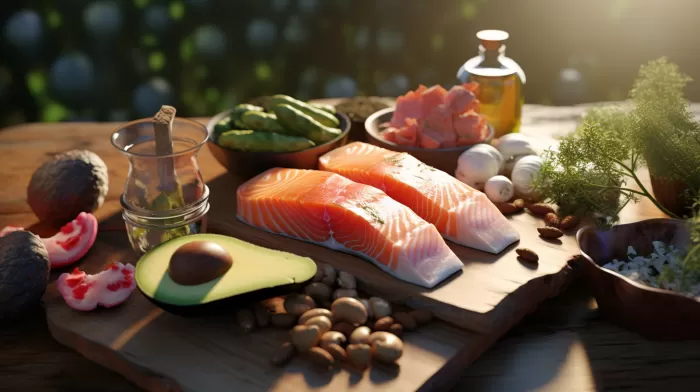We all try hard to eat healthily but temptation often strikes, and sometimes it’s hard to resist that junk food binge. For days like these, wouldn’t it be amazing if there was a quick fix to undo any damage done? While it may sound too good to be true, there may be a way to lessen the effects of foods loaded with unhealthy saturated fats. The key is consuming healthier fats, more specifically, increasing your intake of foods high in polyunsaturated fats.
Polyunsaturated fats to the rescue
Researchers from the University of Georgia have discovered that consuming high polyunsaturated fats can improve cholesterol levels and help your body burn fat more efficiently. The study conducted had participants eating a high polyunsaturated fat diet for just seven days, resulting in a significant improvement in their cholesterol levels, including lower levels of LDL (the “bad” cholesterol) and an overall better fat-burning efficiency.
This means that eating a diet high in polyunsaturated fat could assist you in burning off the extra fat and calories consumed from that occasional junk food splurge. It creates a sort of built-in insurance policy for those moments when your dietary judgment is lacking.
As Jamie Cooper, the study’s senior author and an associate professor at the UGA College of Family and Consumer Sciences says, “By consuming a diet higher in polyunsaturated fat on a regular basis, you’re basically walking around with this inherent protection from the cardiometabolic effects of poor, high saturated fat meals.”
Pump up the polyunsaturated fats
The study participants consumed foods and supplements rich in polyunsaturated fats, some of which include walnuts, wild-caught Alaskan keta salmon, tuna, flaxseed oil, grapeseed oil, canola oil, and fish oil supplements. Additional great sources to consider are sunflower seeds, herring, mackerel, trout, soybeans, tofu, and other soy products.
Dietary experts recommend that 25 to 35 percent of your daily calories should come from polyunsaturated fats. By maintaining this type of diet consistently, you don’t need to beat yourself up too badly when the occasional indulgence happens.
Moderation still matters
It’s essential to remember that moderation is crucial. Researchers advise against making these splurges too frequent or consuming extremely large portions while indulging. According to Jamie Cooper, “If on your ‘splurge’ day or meal you consume 1,000 excess calories, you are going to put on some fat mass from that. Even though higher daily polyunsaturated fat consumption can help you burn more fat when eating high saturated fat meals, it can’t overcome the fat mass gain that will occur with a large caloric surplus from overeating.”
Although a balanced diet of polyunsaturated fats can offer protection from the occasional fast-food splurge, it’s not a magical cure for consistently unhealthy eating habits. Focusing on maintaining a healthy diet and portion sizes and saving junk food for those incredibly rare indulgences is ultimately the best practice for your overall well-being.
Incorporating high polyunsaturated fats into your daily meals can provide a layer of protection to mitigate the negative health consequences of those junk food cravings. Enjoy your occasional treats with a bit more peace of mind and remember that moderation is crucial to maintaining a healthy lifestyle.



